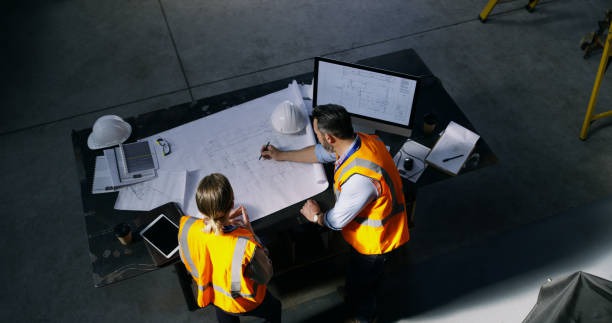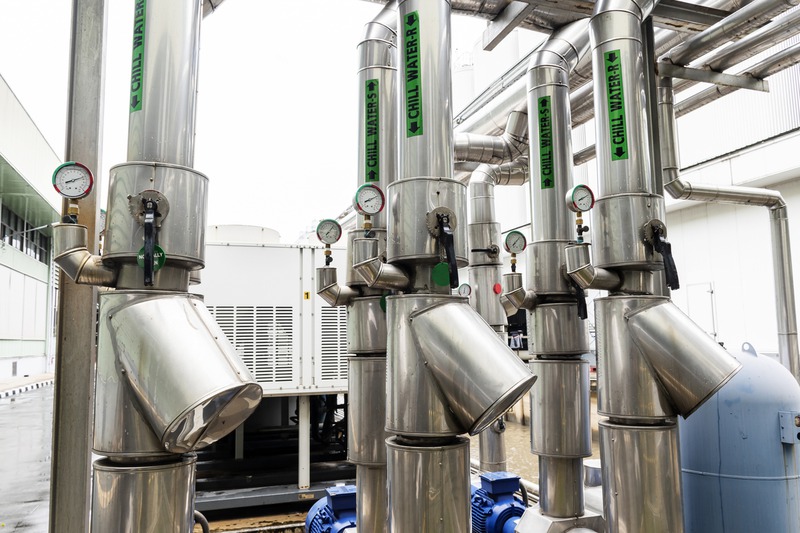Selecting the right process is crucial when planning a commercial construction project. The design-build method combines design and construction services within a single contract, simplifying the project flow. This integrated approach is favored for its efficiency and cost-effectiveness, as it allows for smoother communication, faster project delivery, and a streamlined workflow.
1. Benefits of Choosing Design-Build
The design-build approach offers several advantages:
-
Single Point of Responsibility: With one entity accountable for both design and construction, miscommunications and finger-pointing are minimized.
-
Time Efficiency: Overlapping design and construction phases can significantly reduce the overall timeline.
-
Cost Savings: Early collaboration on design and budget can help identify cost-saving opportunities.
-
Enhanced Communication: Consistent communication from a unified team can help ensure all project goals are understood and met.
Understanding these benefits can help you develop a clear vision for your project, which can, in turn, assist you in selecting the right Kennesaw commercial design build company for your needs.
2. Research and Referrals
Now that you understand the potential benefits, your next step is research. Start by seeking referrals from other business owners or colleagues who have undertaken similar projects. Personal recommendations can provide invaluable insights into a company’s reliability, work quality, and professionalism. Online research is another essential component. Look for reviews and testimonials on industry-specific websites and social media platforms. This can help you gauge overall customer satisfaction and identify any potential red flags.
3. Evaluating Experience and Expertise
Once you’ve compiled a list of potential companies, it’s time to delve into their experience and expertise. Here’s what you should focus on:
Industry-Specific Knowledge
A company with experience in your particular industry will better understand your project’s unique requirements. For example, if you’re in need of top refrigerated warehouse construction services, you’ll want a firm with proven experience in that niche. Look for past projects that align with your industry needs.
Project Portfolio Review
Review the company’s project portfolio closely. This includes evaluating the size, scope, and complexity of their past projects. A robust portfolio reflects a company’s capability to handle diverse and challenging tasks. Don’t hesitate to ask for references from these projects to get direct feedback from previous clients.
4. Assessing Project Management Skills
An often overlooked aspect of choosing a commercial design-build company is project management. Effective project management ensures your vision is brought to life within the agreed timeline and budget.
The Importance of Communication
Clear and consistent communication is the backbone of successful project management. During your initial meetings, pay attention to how the company communicates. Are they responsive, attentive, and transparent? Do they ask insightful questions to understand your needs fully?
Scheduling and Timelines
Discuss the company’s approach to scheduling. Do they provide realistic timelines, accommodating potential delays and adjustments? A proactive company with a strong track record for meeting deadlines is essential for a successful project.
5. Analyzing Financial Stability and Insurance
Financial stability and appropriate insurance coverage are critical factors that can influence the success of your project.
Financial Background Check
Inquire about the company’s financial health to avoid potential disruptions. A financially stable firm ensures that it can handle unexpected challenges without compromising project quality.
Insurance and Bonding
Check whether the company carries adequate insurance, including general liability, workers’ compensation, and professional liability. Additionally, a bonded company provides a financial guarantee that they will fulfill their obligations, protecting you in case of any defaults.
6. Technology and Innovation
Incorporating technology and innovation can significantly impact the efficiency and outcome of your project. Here’s how you can evaluate these aspects:
Use of Modern Tools
In today’s digital age, leveraging advanced technology is crucial for optimizing construction processes. Ask the company about their use of technology, such as Building Information Modeling (BIM) or project management software, which can enhance accuracy and productivity.
Commitment to Sustainability
If sustainability is a priority for your project, inquire about the company’s eco-friendly practices. A firm committed to sustainable practices will incorporate energy-efficient solutions and environmentally responsible materials into your design and build plans.
7. Cost and Contract Transparency
When it comes to financials, having clear, transparent communication upfront can help prevent misunderstandings later.
Detailed Proposals
A reliable design-build firm should provide a detailed proposal that itemizes costs, outlines the project timeline, and sets performance standards. This transparency allows you to make informed decisions and maintain control over your budget throughout the project.
Negotiating Contracts
Before signing any contracts, ensure that you thoroughly understand all terms and conditions. Discuss any concerns with the company and negotiate terms where necessary. A reputable firm will be open to addressing your concerns to ensure a mutually satisfying agreement.
8. Maintaining an Ongoing Relationship
Beyond project completion, maintaining a long-term relationship with your commercial design-build company can be beneficial for future projects.
Post-Project Support
Inquire about the company’s post-project support services. Do they offer maintenance, warranties, or follow-up consultations? A company that stands by its work and remains available after the project’s completion can provide peace of mind. It’s also helpful to consider how they handled past projects. Look for a history of long-standing client relationships as a sign of their reliability and customer satisfaction.
9. Focusing on Local Expertise
Choosing a design-build company with local expertise can provide an edge in navigating regional regulations and conditions.
Community Connections
A company with established local connections will likely have better relationships with subcontractors and suppliers, which can result in smoother operations and better pricing. For instance, if you’re considering partners for commercial construction services in Kennesaw, supporting local firms can often foster community growth and ensure they understand regional requirements.
Regulatory Knowledge
Local firms are often more familiar with area-specific regulations, permits, and zoning laws. This expertise can help prevent legal issues and keep your project on schedule.
10. Commitment to Quality and Safety
Last but certainly not least, prioritize quality and safety in your selection process.
Quality Assurance
Examine the company’s policies on quality assurance and control processes. A company dedicated to high standards will consistently implement measures to ensure the caliber of work meets or exceeds industry expectations.
Safety Protocols
Evaluate the organization’s safety history and protocols. A reputable company will prioritize workplace safety, adhering to regulatory standards and ensuring the protection of all workers and visitors onsite.
Final Thoughts
In summary, choosing the right design-build company is a multifaceted decision that demands careful consideration. By evaluating their experience, project management skills, financial stability, and other critical areas, you’ll be better equipped to select a partner who can successfully bring your vision to life. Whether you’re constructing a new location or undertaking a renovation, making an informed choice will pave the way for a seamless building experience.




